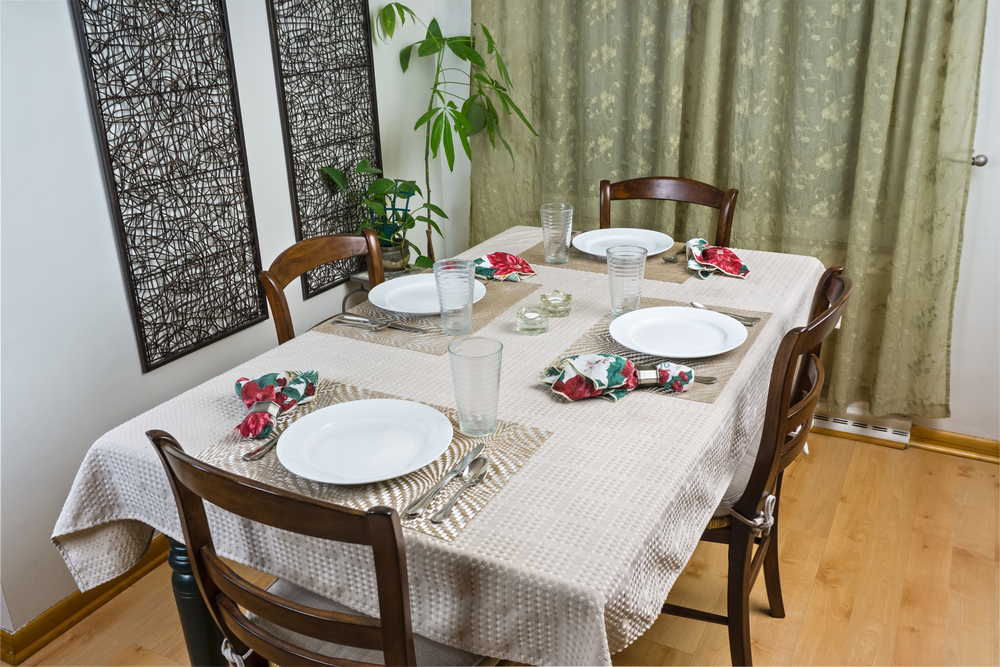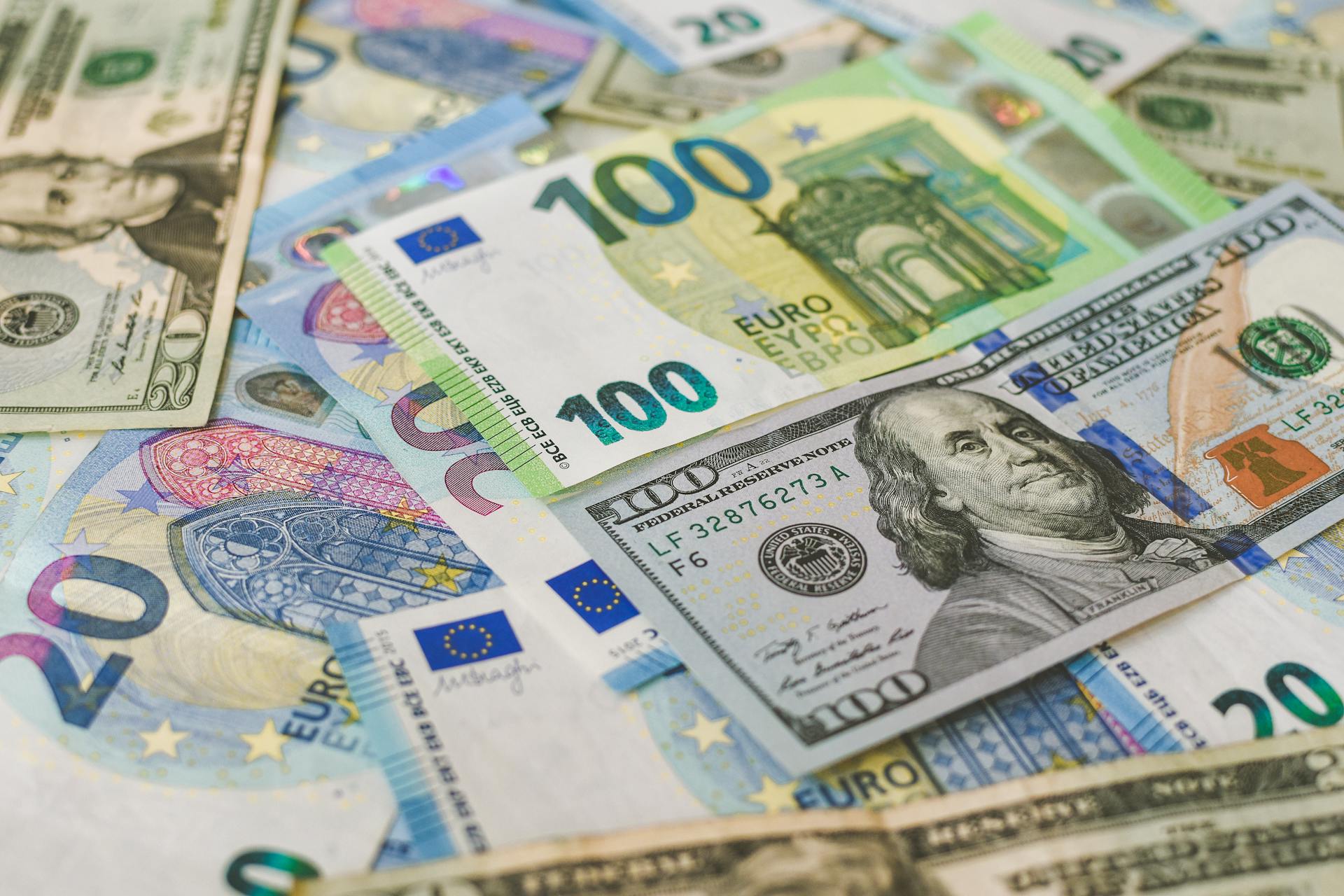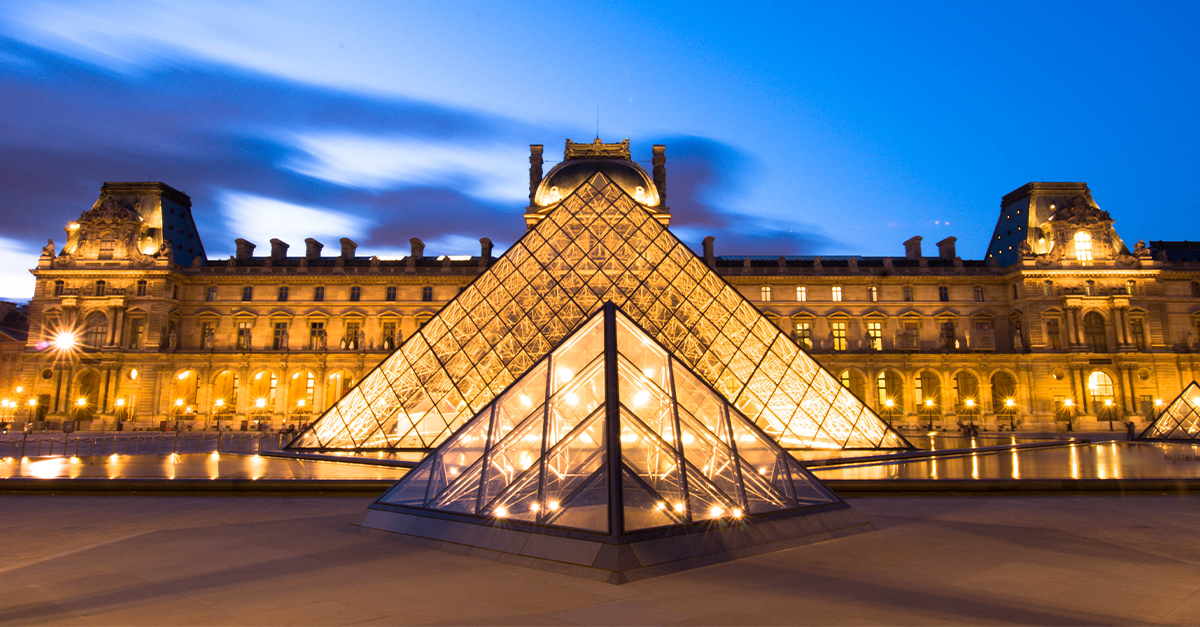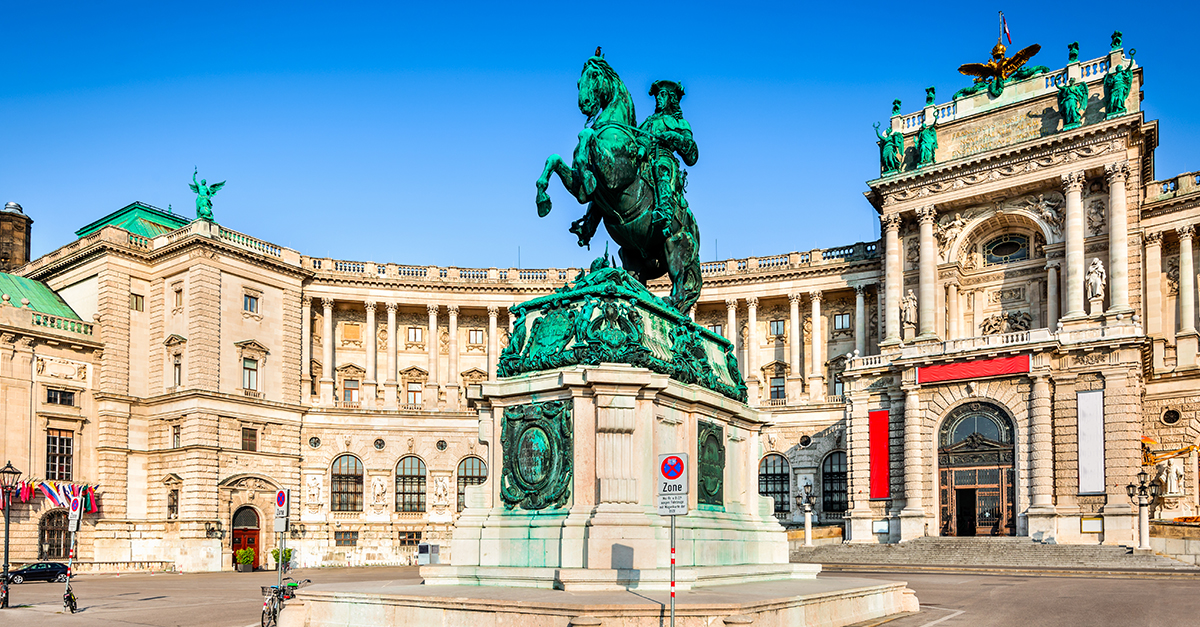European Norms, Baffled Americans
When in Rome, do as the Romans do—or at least fake it well enough to blend in. Europe has a whole list of “wait, people actually do that?” moments that Americans can’t help but gawk at. From quirky customs to everyday oddities, here are a few things that might make you feel like you’ve landed on another planet instead of another continent.

Dining Etiquette Differences
Eating habits are different in America and Europe. Europeans take their time with meals, sitting for hours to eat and talk. Each dish is a chance to be with family and friends. In America, people usually eat hurriedly, trying to finish quickly instead of enjoying their food.
Attitudes Toward Work-Life Balance
Don't be too surprised when you visit France in the summer and find bold signs in front of shops saying, "We are closed." Yeah, that's a thing. In France, workers get 30 days of paid vacation each year. And it's not just a short break; we're talking weeks off to unwind.
America's Work Culture
In America, there is more grumbling than vacationing, as the work culture feels endless. Many workers only get about 15 days of vacation, while others can only dream. The pressure to keep working, even during breaks, is strong. And many Americans tie their worth to the number of hours they work.
Socializing In Public Spaces
Public spaces are more like a social gathering in Europe. It is common to see activities in parks and plazas; this way of life encourages social interactions among even strangers. Fun fact: The "tapas" culture in Spain promotes sharing food and experiences in open spaces.
Dining Is A Private Affair
In America, dining tends to be a more private affair. Eating outside isn’t an everyday thing—it’s more of a “special occasion” kind of treat. But that sense of privacy comes at a price: many Americans admit they miss the buzz and lively energy of Europe’s open-air cafés, where a meal feels less like eating and more like being part of the neighborhood’s heartbeat.
Hierarchical Structures
Relationships between citizens and public servants, as well as employees and employers, are often greeted in a hierarchy that almost always favors the person at the top. Some Scandinavian countries took it upon themselves to bridge the gap; this is called flat hierarchies, and it favors both sides.
Questioning Norms
Standing up to authorities and questioning their judgment or decisions is something that is common in Europe. Citizens most of the time voice their opinions on policies or subjects that directly affect them. For Americans, it is a bit different; they have to think twice before engaging with authorities.
Recycling And Waste
When it comes to the future and looking out for Mother Nature, Europe is leading in this aspect. They have very strict laws on recycling. It is no surprise that nearly 48% of their materials are recycled, and 19% are composted, giving them a total recycling rate of 67%.
Transportation Choices
Many people in Europe would rather use public transport. They tend to rely on trains, buses, and cycling. You might be shocked to hear that Amsterdam has more bicycles than residents. Yes, you read that right. They have walkable cities and fewer cars on the road.
Beach Culture
Europe has a whole different take on body exposure—it’s just not that big of a deal. On many beaches, going au naturel is seen as a simple, carefree choice rather than a statement. In places like France and Spain, “naturist” beaches are everywhere, embracing a body-positive, no-fuss attitude that often leaves modest American tourists blushing behind their towels.
 Aleksandar Todorovic, Shutterstock
Aleksandar Todorovic, Shutterstock
Cultural Acceptance
In Finland, public saunas and spas encourage people to be free together, showing a broader acceptance of bodies. Americans might be surprised by this, which shows how important it is to understand cultural differences.
 VladyslaV Travel photo, Shutterstock
VladyslaV Travel photo, Shutterstock
Punctuality Expectations
How people view time is different in various cultures. In Germany, being on time shows respect. This is very different from some places in America, where being late is often okay. Many Americans may not understand how important punctuality is to others, leading to misunderstandings and cultural surprises.
Social Consequences
It is normal to see kids in Europe going to school or using buses by themselves. Americans, who don't usually let their kids out alone as much, will surely find this surprising. Parents in Europe trust that their cities are safe for their kids.
Different Norms
Many Americans are not really open about displaying affection in public. Even a 2014 survey by YouGov found that 71% feel this way. This means the majority prefer to keep their relationships private. It might be shocking to see couples engaging in PDA because it isn't that common back home.
Public Displays Of Affection in Europe
In Europe, public displays of affection aren’t reserved for starry-eyed teenagers—they’re just part of everyday life. Many countries have long moved past the old “no kissing in public” mindset, and in places like Italy, Spain, and Greece, affection is practically a love language. A quick kiss or a lingering embrace on the street isn’t scandalous—it’s simply how people say “I love you” on the way to lunch.
Tipping Practice
In many European countries, tipping isn't mandatory. In America, if you don't leave a tip of 20 to 25 percent, waiters might ask why you didn't tip. This can be puzzling because you never know how European servers will respond to tips.
Smaller Portions
Food in Europe is served in small sizes. This shows how people think about food and being healthy. Eating less food can help people stay healthy and make them think about what they eat.
Slow Cooking
European meals are made to look extremely appetizing. Fun fact: In Italy, there is an idea called "slow food." It supports cooking in old ways to help people love the food they eat and not just eat for eating's sake.
Social Drinking
At a young age, there are a lot of things that one would not want to be caught doing in public, and drinking is one of them. Not for some European countries; for them, drinking is integrated into social life from a young age. Unlike in America, where drinking usually means parties or celebrations.
 Personal Belongings, Shutterstock
Personal Belongings, Shutterstock
Drinking Age Variations
In America, one is likely to go to jail for drinking at an early age; they have a strict age limit of 21 and older, nothing less. But in many European countries, drinking is normal for younger people. For example, in Belgium, you can drink as early as 16 years old.
Multicultural Environments
If there’s one thing European cities have absolutely mastered, it’s mixing cultures like ingredients in a perfect recipe. Walking through places like Barcelona or London feels like traveling the world in a single afternoon—languages, traditions, and cuisines all blending together on the same street. That daily dose of diversity doesn’t just make life more colorful—it makes communities stronger, friendlier, and a whole lot more interesting.
Celebrating Differences
Celebrating different backgrounds not only brings people together but also creates unity and a sense of belonging. More than 2 million people visit London every year because of the Notting Hill Carnival. This event showcases colorful cultures and helps people understand each other, while American celebrations are usually less diverse.
 Ms Jane Campbell, Shutterstock
Ms Jane Campbell, Shutterstock
Universal Healthcare
In many parts of Europe, policies are in place to make healthcare free or very cheap. This is not the same in the U.S., where healthcare costs a lot. As a result, people in Europe are happier with the kind of healthcare system they have.
Preventive Care Focus
European healthcare focuses on keeping people healthy. They encourage regular doctor visits and tests to stop problems before they start. Many people feel they live healthier lives because of this system.
Different Educational Systems
Schools in Europe teach differently. They help kids learn in more ways than just taking tests. The focus is on teaching students to think and be creative. In Finland, student performance speaks for itself, as they have one of the best education systems in the world.
Going To College In Germany
In Germany, college is all about the education—not the crushing student loans. Most universities are public, which means tuition is completely free, even for international students. It’s a mind-blowing concept for Americans, who often shell out house-sized sums just to earn a degree and then spend years paying it off. In Germany, students get the same top-notch education without the lifelong financial hangover.
Personal Space
Everyone loves their space until you're an American, and then you're really putting up a wall. Americans like a bit of distance and may feel uncomfortable if someone gets too close. Europeans, however, often stand closer during conversations. Of course, they're not saying, "Be in my face," but they maintain more closeness.
Vacationing Together
What is a family without the memories, vacations, and, of course, a bit of car karaoke? Europeans know the importance of these moments and always find time to share the experience. Family vacations are important for Europeans, and they always take advantage of every moment of them.
 PeopleImages.com - Yuri A, Shutterstock
PeopleImages.com - Yuri A, Shutterstock
Directness Vs. Indirectness
Here's the thing: direct talk can be seen or received differently. While some see it as a way of expressing themselves without going around in circles, others view it as insulting and disrespectful. Europeans value straightforward communication, which may challenge what Americans consider polite.
Humor In Conversations
It is one thing to communicate, but how it's received is a different ball game. For Europeans, humor is often expressed sarcastically and includes irony. For Americans, humor is usually seen as straightforward comedy. This can often lead to misunderstandings.
Dressing For Occasions
In Europe, fashion isn’t just about clothes—it’s a full-blown cultural statement. Whether they’re heading to work or just grabbing a coffee, Europeans have a knack for looking effortlessly put-together. Every outfit feels intentional, polished, and just a little bit chic. Americans, on the other hand, tend to prioritize comfort over couture—think sneakers and hoodies over tailored coats and scarves.
Importance Of Individuality
People in Europe see fashion from an individual point of view; it is one way a person can be themselves and show their unique style. Americans are more casual. To an average American, it is more about how comfortable they can appear rather than how they look.
Cultural Heritage
People love their old buildings and places and work hard to keep them safe. Italy, for example, has 60 UNESCO sites. Europe really prioritizes the preservation of their culture and legacies. That's why people who try to disrupt them are often dealt with contempt.
Festivals Celebrating Traditions
Festivals in Europe celebrate old events and local traditions. These fun gatherings show why heritage is important and build pride in the community. Travelers' stories show how history shapes life in Europe today, unlike America, which focuses on innovation.
Pet Ownership Culture
In Europe, pets are like family. Many people care a lot about animals, with rules to protect pet rights. Pet owners are expected to follow the city's rules on keeping them on a leash during walks, cleaning up after them, etc. Breeding is also not as common as it is in the U.S.
Public Spaces For Pets
Europe takes “pet-friendly” to a whole new level. In many cities, you’ll see furry companions everywhere—from parks and cafés to offices and trains. Paris even lets dogs dine inside restaurants, which says a lot about how relaxed Europeans are when it comes to their four-legged friends. In the U.S., strict health codes usually keep pets at home—but in Europe, they’re part of the social scene.
 Piotr Piatrouski, Shutterstock
Piotr Piatrouski, Shutterstock
Multi-Party Systems
A lot of people feel represented across the continent. The countries have many political parties, meaning more diverse ideas are represented as well. This is different from the U.S., which mostly has two main parties.
 Frame Stock Footage, Shutterstock
Frame Stock Footage, Shutterstock
Holistic Health Practices
Natural treatments are used by a lot of people. Many prefer alternative therapies and natural remedies. In countries like Germany, the number of people using herbal treatments has increased by 70%, showing different views on health.
Exercise As A Lifestyle
Staying active is a normal part of daily life (as it is in America, too). But in Europe, lots of individuals walk and bike regularly to stay fit. This differs from America, where people typically prefer the gym for their workouts.
Shopping Habits
People often shop at local markets. They buy fresh food and handmade things, not from big stores. This way of shopping values quality and social engagement. Instead of just putting items in their carts, people get to understand where and what they're buying.
Unique Holiday Traditions
Everyone has their own way of celebrating the holidays, and in Europe, those traditions can get pretty fascinating. Each country adds its own twist—whether it’s the food, the decorations, or the folklore. Take Germany and Austria, for example: instead of waiting for Santa Claus, kids there have to watch out for Krampus, the horned creature who punishes the naughty ones. Talk about motivation to stay on the nice list.
Public Holidays
Public holidays are days to remember important events in history, and countries in Europe have many public holidays linked to their past. For instance, Bastille Day in France is set aside to celebrate the French Revolution. These holidays help us understand how history shapes the modern way of life.
Quality of Life
This whole work-life balance is a thing that a lot of countries are yet to come up with a solution for. But kudos to countries like Denmark for finding a solution. It is encouraged and expected that people leave their offices on-time and spend more time with their families.
Prioritizing Happiness
People value being happy and enjoying life more than owning a lot of things. They focus more on spending time with others and having good experiences. European culture really makes you think about what makes life truly worth living.












































